Signs of the Times • 21 April 2016 • No. 69
¶ Processional. “We are stardust, we are golden, we are billion year old carbon, And we got to get ourselves back to the garden.” —Joni Mitchell, “Woodstock”

Photo: Japanese Garden, Portland, Oregon.
¶ Short history of Earth Day.
¶ Invocation. “Great are you, O God, and greatly to be praised. Your holy Great Smokies are the joy of all the earth. Break forth in singing, you Sierra Madres, you forests and every wild flower. For the Blessed One unveils you. Blow the trumpet on every Appalachian ridge; sound the alarm on Mount Ranier! Let all the inhabitants of the land tremble, for the day of the Lord is coming.” —continue reading Ken Sehested’s “Great Holy Smokies”
 ¶ Call to worship. “I Come to the Garden Alone,” Mahalia Jackson
¶ Call to worship. “I Come to the Garden Alone,” Mahalia Jackson
¶ Good news, bad news. First, the bad: There are tons of trash floating in the Pacific Ocean. The good news: 21-year-od Boyan Slat found an ingenious way to remove that trash. (1:29 video)
¶ Abolitionist and underground railroad leader Harriet Tubman will replace Andrew Jackson on the $20 bill, US Treasury Secretary Jack Lew announced today. The change will likely take place in 2020 to coincide with the 100th anniversary of the 19th Amendment’s ratification giving women the right to vote. —watch this USAToday 43-second video on the history of women’s image appearing on US currency
¶ Testify. Listen to this amazing Fareed Zakaria interview (6:05 video) with former astronaut and NASA Earth Sciences Director Piers Sellers on how he plans to spend his final months in light of his pancreatic cancer diagnosis.
¶ Confession. “The Earth is 4.6 billion years old. Let’s scale that to 46 years. We [humans] have been here for 4 hours. Our 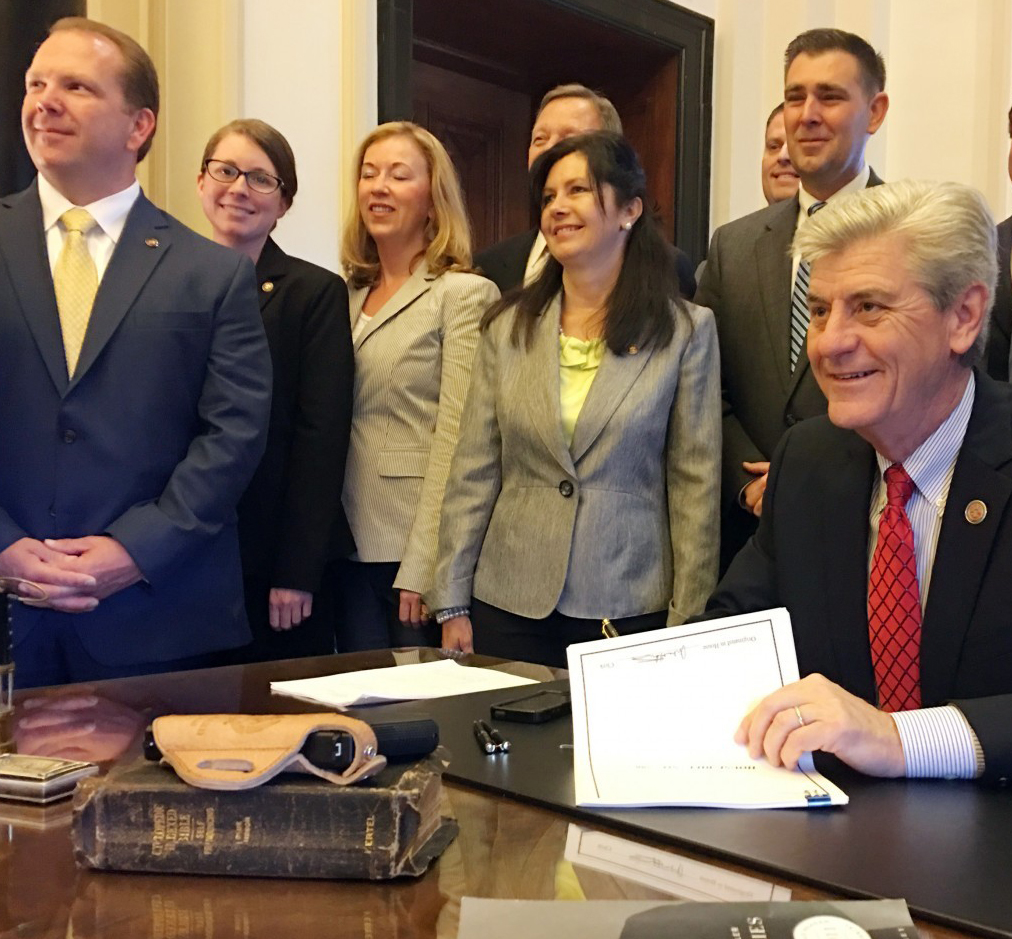 industrial revolution began 1 minute ago. In that time, we have destroyed more than 50% of the world’s forests.” —Planting Peace
industrial revolution began 1 minute ago. In that time, we have destroyed more than 50% of the world’s forests.” —Planting Peace
¶ Words of assurance. "The devil knows your name but calls you by your sin. God knows your sin but calls you by your name." —Ricardo Sanchez (Thanks, Susan.)
Photo: Clay Chandler/Mississippi’s Governor’s Office via Associated Press
¶ The Word, previously a “sword,” is now a Glock. “A holstered gun sat on top of a Bible on Mississippi Gov. Phil Bryant’s desk Friday [15 April] when he signed a law allowing guns in churches, which he said would help protect worshippers from potential attackers. The Church Protection Act allows places of worship to designate members to undergo firearms training so they can provide armed security for their congregations..” —Nassim Benchaabane, Washington Post
¶ Hymn of praise. “Blessed are the meek for they shall inherit. / Blessed is the lamb whose blood flows. / Blessed are the sat upon, Spat upon, Ratted on, / O Lord, Why have you forsaken me? . . . / I have tended my own garden / Much too long.” —“Blessed,” Simon and Garfunkel
¶ You would have had to pay close attention to mainstream media to know that over the last week well over 1,200 people were arrested on Capitol Hill in a series of unprecedented protests against the influence of big money and corporate lobbying in politics. The events represent two overlapping initiatives: From Monday through Friday it was  Democracy Spring, representing only 100 organizations. From Saturday to this Monday (18 April) it was Democracy Awakening, a broad coalition of nearly 300 organizations. Read Amy Goodman’s interview of Rev. William Barber, president of the North Carolina NAACP and leader of the “Moral Monday” movement.
Democracy Spring, representing only 100 organizations. From Saturday to this Monday (18 April) it was Democracy Awakening, a broad coalition of nearly 300 organizations. Read Amy Goodman’s interview of Rev. William Barber, president of the North Carolina NAACP and leader of the “Moral Monday” movement.
¶ A collection of quotes on gardens. To see the entire collection, go to “Life began in a garden.”
§ And the Lord God planted a garden in Eden, in the east; and there he put the man whom he had formed. Out of the ground the Lord God made to grow every tree that is pleasant to the sight and good for food, the tree of life also in the midst of the garden, and the tree of the knowledge of good and evil. ~Genesis 2:8-9
§ A garden is a grand teacher. It teaches patience and careful watchfulness; it teaches industry and thrift; above all it teaches entire trust. ~Gertrude Jekyll
§ Awake, O north wind, and come, O south wind! Blow upon my garden that its fragrance may be wafted abroad.  Let my beloved come to his garden, and eat its choicest fruits. ~Song of Solomon 4:16
Let my beloved come to his garden, and eat its choicest fruits. ~Song of Solomon 4:16
§ Garden as though you will live forever. ~William Kent
¶ Musical interlude. “Song from Secret Garden,” Rolf Lovland.
§ The weeds keep multiplying in our garden, which is our mind ruled by fear. Rip them out and call them by name. ~Sylvia Browne
§ To dwell is to garden. ~Martin Heidegger
§ I come to my garden, my sister, my bride; I gather my myrrh with my spice, I eat my honeycomb with my honey, I drink my wine with my milk. Eat, friends, drink, and be drunk with love. ~Song of Solomon 5:1
§ Plants cry their gratitude for the sun in green joy. ~Astrid Alauda
§ You can cut all the flowers but you cannot keep spring from coming. ~Pablo Neruda
¶ Musical interlude. “Adadio,” from the Secret Garden recording, produced by Rolf Løvland.
§ For the Lord will comfort Zion; he will comfort all her waste places, and will make her wilderness like Eden, her desert like the garden of the Lord; joy and gladness will be found in her, thanksgiving and the voice of song. ~Isaiah 51:3
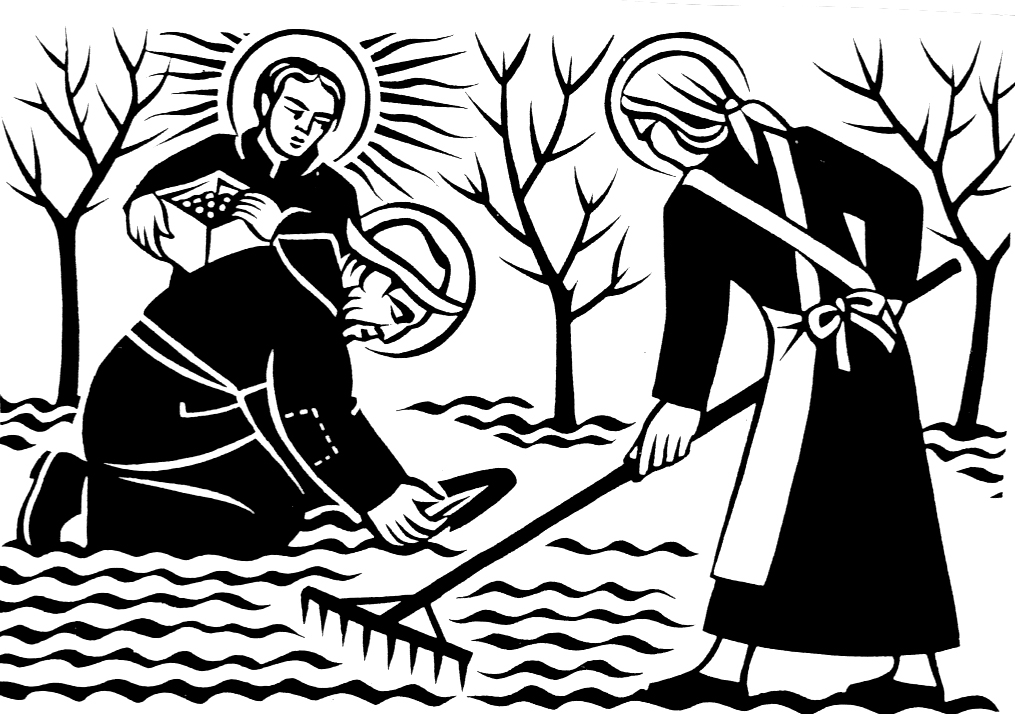 § A society grows great when old men plant trees whose shade they know they shall never sit in. ~Greek proverb
§ A society grows great when old men plant trees whose shade they know they shall never sit in. ~Greek proverb
Right: Art by Ade Bethune, ©Ade Bethune Collection, St. Catherine University, St. Paul, MN.
§ The earth laughs in flowers. ~Ralph Waldo Emerson
§ I think this is what hooks one to gardening: it is the closest one can come to being present at creation. ~Phyllis Theroux
§ They shall come and sing aloud on the height of Zion, and they shall be radiant over the goodness of the Lord, over the grain, the wine, and the oil, and over the young of the flock and the herd; their life shall become like a watered garden, and they shall never languish again. ~Jeremiah 31:12
§ Earth is here so kind, that just tickle her with a hoe and she laughs with a harvest. ~Douglas William Jerrold
¶ Musical interlude. “Hymn to Hope,” from the Secret Garden recording, produced by Rolf Løvland.
§ I have been fed from fields I did not till. I have crossed bridges I did not build. I have sat in the shade of trees I did 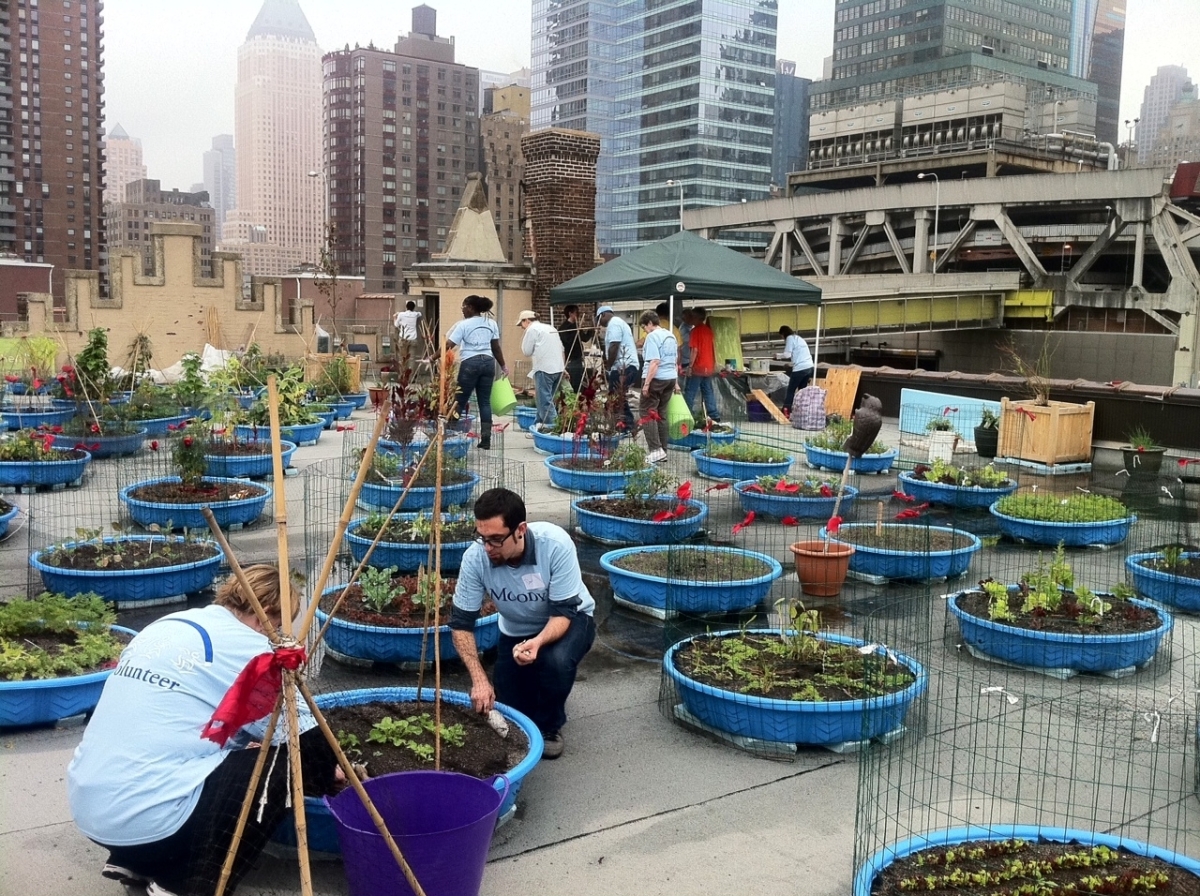 not plant. I have received knowledge I did not research. ~Henlee Barnette
not plant. I have received knowledge I did not research. ~Henlee Barnette
Left: Rooftop garden at Metro Baptist Church in New York City, which began in 2011. “While we are proud of the amount we inexpensively grow,” said co-pastor Rev. Tiffany Triplett, “we want to be invited into the conversation on food security.”
§ It is forbidden to live in a town with no greenery. ~ Jerusalem Talmud, Kiddushin 4:12
§ Behold, my friends, the spring is come; the earth has gladly received the embraces of the sun, and we shall soon see the results of their love! ~Sitting Bull
§ Gardening is the slowest of the performing arts. ~author unknown
§ When the soil disappears, the soul disappears. ~Terri Guillemets
§ Green fingers are the extension of a verdant heart. ~Russell Page
§ Gardening is cheaper than therapy and you get tomatoes. 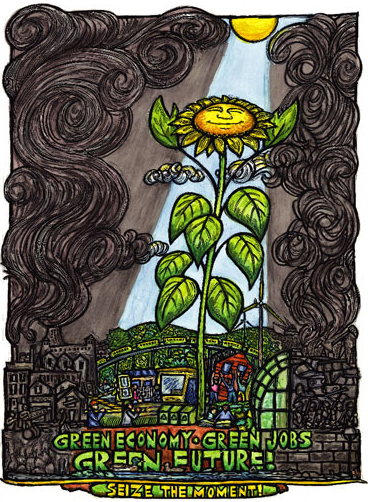 ~author unknown
~author unknown
¶ Musical interlude. “Prayer,” from the Secret Garden recording, produced by Rolf Løvland.
§ They shall again live beneath my shadow, they shall flourish as a garden; they shall blossom like the vine, their fragrance shall be like the wine of Lebanon. ~Hosea 14:7
§ I cultivate my garden, and my garden cultivates me. ~Robert Brault
Right: Ricardo Levins Morales, ©RLM Art Studio
§ [The kingdom of God] is like a mustard seed that someone took and sowed in the garden; it grew and became a tree, and the birds of the air made nests in its branches. ~Luke 13:19
§ In the garden I tend to drop my thoughts here and there. To the flowers I whisper the secrets I keep and the hopes I breathe. I know they are there to eavesdrop for the angels. ~Dodinsky
§ Everything that slows us down and forces patience, everything that sets us back into the slow circles of nature, is a help. Gardening is an instrument of grace. ~May Sarton
§ Then the angel showed me the river of the water of life, bright as crystal, flowing from the throne of God and of the Lamb through the middle of the street of the city. On either side of the river is the tree of life with its twelves kinds of fruit, producing its fruit each month; and the leaves of the tree are for the healing of the nations. Nothing accursed will be found there any more. ~Revelation 22:1-3a
¶ Origins of “the war on drugs,” from John Erlichman, former policy adviser for President Richard Nixon. “The Nixon campaign in 1968, and the Nixon White House after that, had two enemies: the antiwar left and black people. You understand what I’m saying? We knew we couldn’t make it illegal to be either against the war or black, but by getting the public to associate the hippies with marijuana and blacks with heroin, and then criminalizing both heavily, we could disrupt those communities. We could arrest their leaders, raid their homes, break up their meetings, and vilify them night 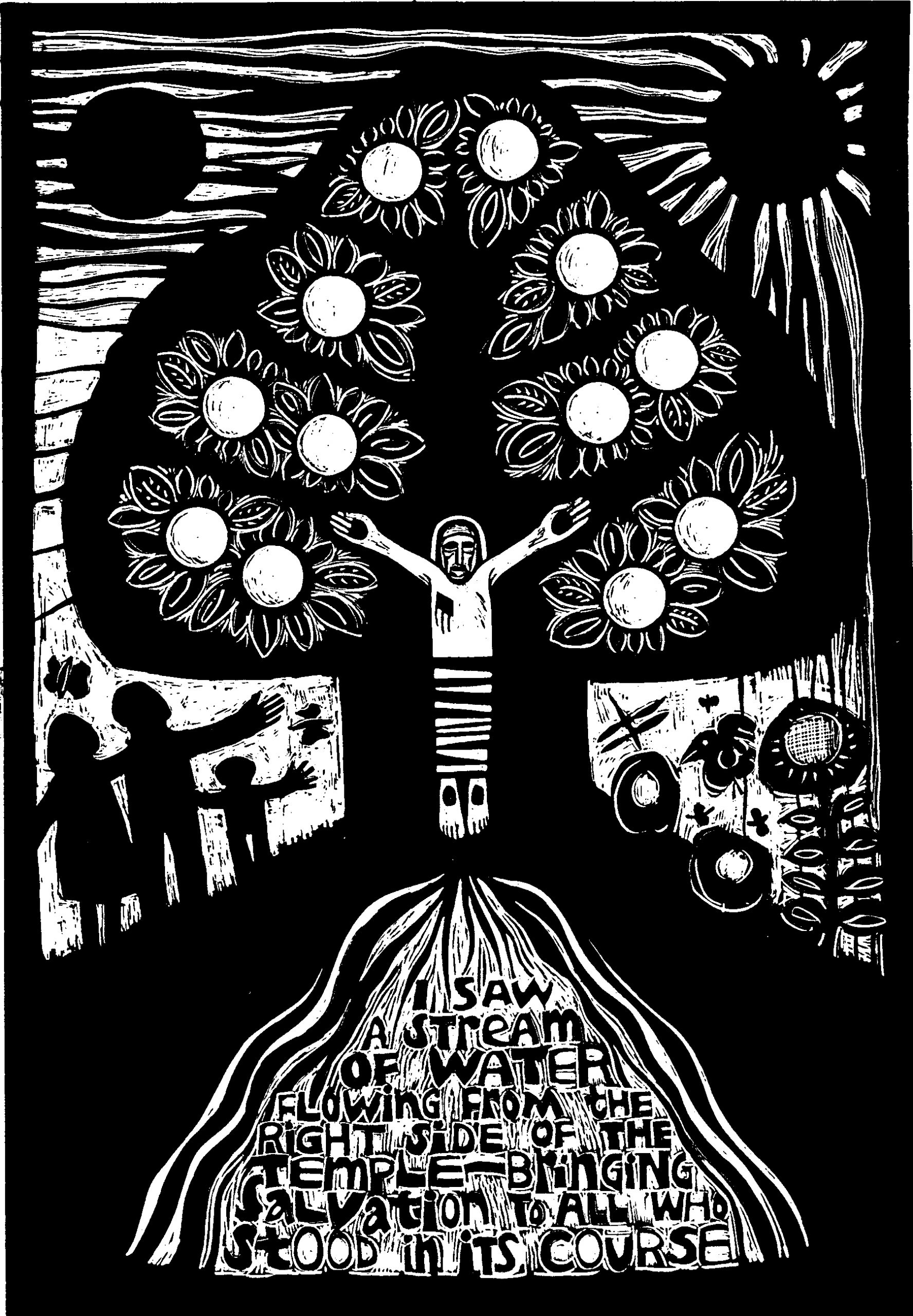 after night on the evening news. Did we know we were lying about the drugs? Of course we did.” —Dan Baum, “Legalize It All: How to win the war on drugs”
after night on the evening news. Did we know we were lying about the drugs? Of course we did.” —Dan Baum, “Legalize It All: How to win the war on drugs”
Left: Meinrad Craighead
¶ Preach it. “God’s liberation from Egyptian slavery comes in the form of a promised new garden. ‘For the Lord your God is bringing you into a good land,’ says the book of Deuteronomy, ‘a land with flowing stream . . . a land of wheat and barley, of vines and fig trees . . . a land of olive trees and honey, a land where you may eat bread without scarcity, where you will lack nothing. . . . You shall eat your fill and bless the Lord your God. . . . ‘ (8:7-10). The biblical vision of salvation is rooted in fertile land, bountiful harvest, enduring security. The welfare of the soul and the soil—human and humus alike, adam and adama together—are everywhere intertwined.” —Ken Sehested
¶ Call to the table. When my thirst got great enough / to ask, a stream welled up inside; / some jade wave buoyed me forward / and I found myself upright / in the instant, with a garden / inside my own ribs aflourish. / There, the arbor leafs. / The vines push out plump grapes. / You are loved, someone / said, take that / and eat it. ~Mary Karr
¶ Altar call. “Praying for peace is a little like praying for a weedless garden.” —John Stoner
¶ This audio story is worth your time (6:55). “A young Israeli grew up on stories of the Holocaust, determined to enter Israel's army and not let Jews be victims again. But his encounter with a small Palestinian girl would change his outlook.” —National Public Radio
¶ Benediction. “Garden Song” (“Inch by Inch”), Pete Seeger.
¶ Recessional. “Who lived here / He must have been a gardener that cared a lot / Who weeded out the tears and grew a good crop / And we are so amazed, we're crippled and we're dazed / A gardener like that one no one can replace.” —“Empty Garden” (song for John Lennon), Elton John
¶ Lectionary for Sunday next. To what end do we long for God’s graciousness? (See Psalm 67:2.)
 ¶ Just for fun. “Homegrown Tomatoes,” Guy Clark.
¶ Just for fun. “Homegrown Tomatoes,” Guy Clark.
¶ More fun. “Jesus and Tomatoes (coming soon)," Kate Campbell.
# # #
Featured this week on prayer&politiks:
• “Life began in a garden: A collection of quotes about gardens”
• “Bearing Courage: Rooted in Hope: Address to the 2016 Alliance of Baptists”
• “Holy Great Smokies," A call to worship recalling the mountain sites of covenant and confrontation in Scripture”
Earth Day resources:
• “Realm of earth, rule of Heaven: Bodified faith and environmental activism”
• “All People That On Earth Do Dwell,” old hymn, new lyrics
• “Heaven’s Delight and Earth’s Repose,” a litany for worship inspired by Psalm 145
• “Satisfy the earth,” a litany for worship on Earth Day
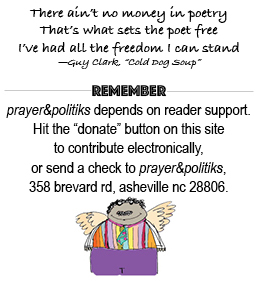 • “The earth is satisfied,” a litany for worship on Earth Day
• “The earth is satisfied,” a litany for worship on Earth Day
• “The earth is the Lord’s," a collection of biblical texts which reveal the non-human parts of creation responding to God’s presence, promise and purpose
• “The earth is the Lord’s,” a litany for use in worship on Earth Day
©Ken Sehested @ prayerandpolitiks.org. Language not otherwise indicated above is that of the editor. Don’t let the “copyright” notice keep you from circulating material you find here (and elsewhere in this site). Reprint permission is hereby granted in advance for noncommercial purposes.
Your comments are always welcomed. If you have news, views, notes or quotes to add to the list above, please do. If you like what you read, pass this along to your friends. You can reach me directly at klsehested@gmail.com.


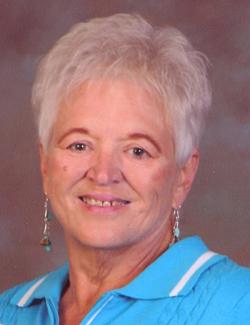 Beloveds, now we know for sure. Every day is grace and every night is gratitude.
Beloveds, now we know for sure. Every day is grace and every night is gratitude.
 ¶ Call to worship. “
¶ Call to worship. “ industrial revolution began 1 minute ago. In that time, we have destroyed more than 50% of the world’s forests.” —Planting Peace
industrial revolution began 1 minute ago. In that time, we have destroyed more than 50% of the world’s forests.” —Planting Peace Democracy Spring
Democracy Spring Let my beloved come to his garden, and eat its choicest fruits. ~Song of Solomon 4:16
Let my beloved come to his garden, and eat its choicest fruits. ~Song of Solomon 4:16 § A society grows great when old men plant trees whose shade they know they shall never sit in. ~Greek proverb
§ A society grows great when old men plant trees whose shade they know they shall never sit in. ~Greek proverb not plant. I have received knowledge I did not research. ~Henlee Barnette
not plant. I have received knowledge I did not research. ~Henlee Barnette ~author unknown
~author unknown after night on the evening news. Did we know we were lying about the drugs? Of course we did.” —
after night on the evening news. Did we know we were lying about the drugs? Of course we did.” — ¶ Just for fun. “
¶ Just for fun. “ • “
• “
 subcommittee on Tuesday 12 April, during a wide-ranging discussion on the Middle East and the refugee crisis.” —
subcommittee on Tuesday 12 April, during a wide-ranging discussion on the Middle East and the refugee crisis.” — problems without using violence.” (Thanks Bruce.)
problems without using violence.” (Thanks Bruce.) exemption for churches and religious organizations.” —
exemption for churches and religious organizations.” — Resurrection joy foretell, Life in the Spirit’s breath rejoice.” —continue reading Ken Sehested’s new lyrics to “
Resurrection joy foretell, Life in the Spirit’s breath rejoice.” —continue reading Ken Sehested’s new lyrics to “ ¶ Protect and serve: When police protect us all. (0:38
¶ Protect and serve: When police protect us all. (0:38 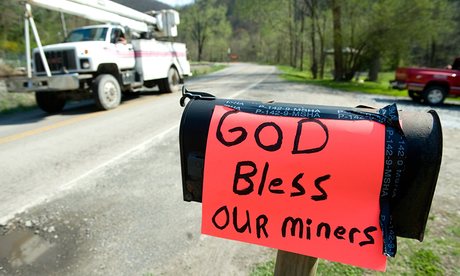 advocates hope is a death knell for dirty energy. "Peabody Energy's bankruptcy is a harbinger of the end of the fossil fuel era," said Jenny Marienau, divestment campaign manager with the climate advocacy group 350.org. —
advocates hope is a death knell for dirty energy. "Peabody Energy's bankruptcy is a harbinger of the end of the fossil fuel era," said Jenny Marienau, divestment campaign manager with the climate advocacy group 350.org. — Robert Jeffress, pastor of First Baptist Church, Dallas, Texas, and an outspoken promoter of GOP presidential candidate Donald Trump. For more background see
Robert Jeffress, pastor of First Baptist Church, Dallas, Texas, and an outspoken promoter of GOP presidential candidate Donald Trump. For more background see 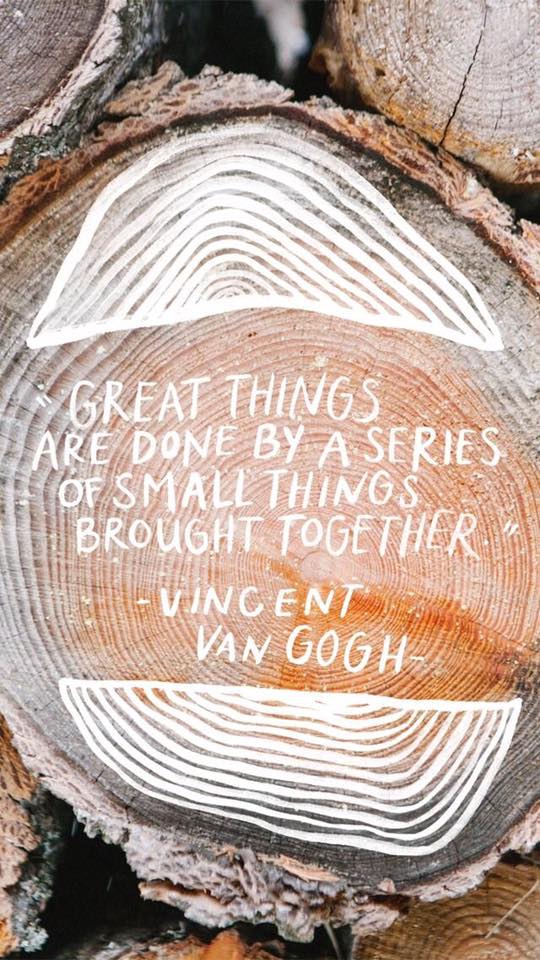 response to what is a global epidemic of violence, which Pope Francis has labeled a ‘world war in installments’, we are being called to invoke, pray over, teach and take decisive action. With our communities and organizations, we look forward to continue collaborating with the Holy See and the global Church to advance Gospel nonviolence. —read the
response to what is a global epidemic of violence, which Pope Francis has labeled a ‘world war in installments’, we are being called to invoke, pray over, teach and take decisive action. With our communities and organizations, we look forward to continue collaborating with the Holy See and the global Church to advance Gospel nonviolence. —read the 
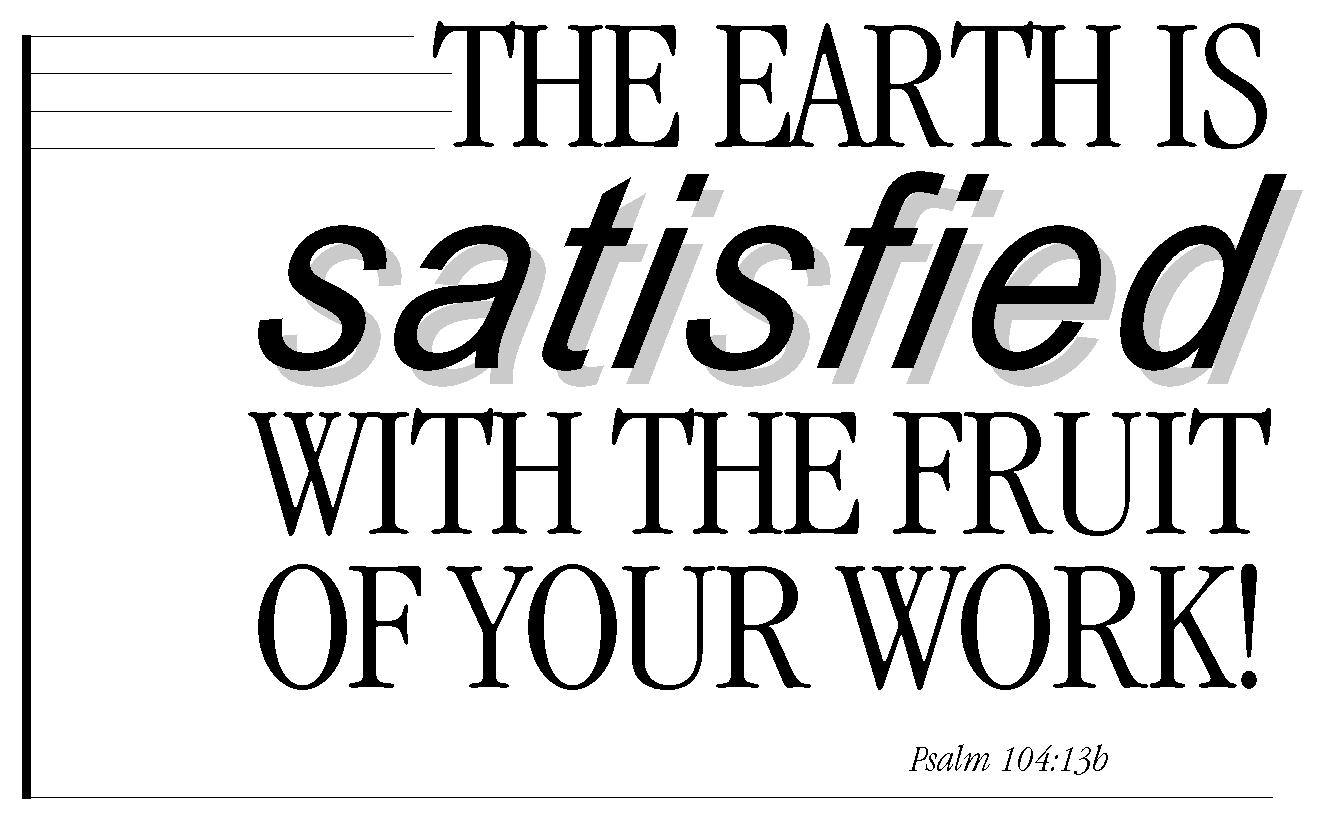 Earth Day resources:
Earth Day resources: